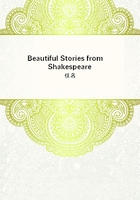
第41章
Oberon (ob'-ër-on)
Olivia (ô-liv'-i-å)
Ophelia (ô-fêl'-i-å or o-fêl'-yå)Orlando (awr-lan'-dô)
Orsino (awr-sê'-nô)
Othello (ô-thel'-ô)
Parolles (pa-rol'-êz)
Paulina (paw-lî'-nå)
Pentapolis (pen-tap'-o-lis)
Perdita (për'-di-tå)
Pericles (per'-i-klêz)
Petruchio (pe-trû'-chi-ô)
Phoenix (fê'-niks)
Pisanio (pê-sah'-ni-ô)
Polixines (pô-liks'-e-nêz)
Polonius (pô-lô'-ni-us)
Portia (pôr'-shi-å)
Proteus (prô'-te-us or prô'-tûs)Regan (rê'-gån)
Roderigo (rô-der'-i-gô)
Romano (rô-mah'-nô)
Romeo (rô'-me-ô)
Rosalind (roz'-å-lind)
Rosaline (roz'-å-lin)
Rousillon (ru-sê-lyawng')
Sebastian (se-bas'-ti-ån)
Sempronius (sem-prô'-ni-us)
Simonides (si-mon'-i-dêz)
Solinus (sô-lî'-nus)
Sycorax (sî'-ko-raks)
Syracuse (sir-å-kus)
Thaisa (tha-is'-å)
Thaliard (thâ'-li-ård)
Thurio (thû'-ri-ô)
Timon (tî'-mon)
Titania (tî-tan'-i-å)
Tybalt (tib'-ålt)
Ursula (ur'-sû-lå)
Venetian (ve-nê'-shån)
Venice (ven'-is)
Ventidius (ven-tid'-i-us)
Verona (vâ-rô'-nå)
Vicentio (vê-sen'-shi-ô)
QUOTATIONS FROM SHAKESPEARE
ACTION.
Action is eloquence, and the eyes of the ignorant More learned than their ears.
Coriolanus -- III. 2.
ADVERSITY.
Sweet are the uses of adversity, Which, like the toad, ugly and venomous, Wears yet a precious jewel in his head.
As You Like It -- II. 1.
That, Sir, which serves and seeks for gain, And follows but for form, Will pack, when it begins to rain, And leave thee in the storm.
King Lear -- II. 4.
Ah! when the means are gone, that buy this praise, The breath is gone whereof this praise is made:
Feast won--fast lost; one cloud of winter showers, These flies are couched.
Timon of Athens -- II. 2.
ADVICE TO A SON LEAVING HOME.
Give thy thoughts no tongue, Nor any unproportioned thought his act Be thou familiar, but by no means vulgar.
The friends thou hast, and their adoption tried Grapple them to thy soul with hooks of steel;But do not dull thy palm with entertainment Of each new-hatched, unfledged comrade. Beware Of entrance to a quarrel: but, being in, Bear it, that the opposer may beware of thee.
Give every man thine ear, but few thy voice:
Take each man's censure, but reserve thy judgment, Costly thy habit as thy purse can buy, But not expressed in fancy: rich, not gaudy:
For the apparel oft proclaims the man;
And they in France, of the best rank and station, Are most select and generous, chief in that.
Neither a borrower, nor a lender be:
For loan oft loses both itself and friend;
And borrowing dulls the edge of husbandry.
This above all.--To thine ownself be true;
And it must follow, as the night the day, Thou canst not then be false to any man.
Hamlet -- I. 3.
AGE.
My May of life Is fallen into the sear, the yellow leaf:
And that which should accompany old age, As honor, love, obedience, troops of friends, I must not look to have; but, in their stead, Curses not loud, but deep, mouth-honor, breath, Which the poor heart would feign deny, but dare not.
Macbeth -- V. 3.
AMBITION.
Dreams, indeed, are ambition; for the very substance of the ambitious is merely the shadow of a dream. And Ihold ambition of so airy and light a quality, that it is but a shadow's shadow.
Hamlet -- II 2.
I charge thee fling away ambition;
By that sin fell the angels, how can man then, The image of his Maker, hope to win by 't?
Love thyself last; cherish those hearts that hate thee;Corruption wins not more than honesty.
Still in thy right hand carry gentle peace, To silence envious tongues. Be just, and fear not!
Let all the ends, thou aim'st at, be thy country's, Thy God's, and truth's.
King Henry VIII. -- III. 2.
ANGER.
Anger is like A full-hot horse, who being allowed his way, Self-mettle tires him.
King Henry VIII. -- I. 1.
ARROGANCE.
There are a sort of men, whose visages Do cream and mantle like a standing pond, And do a willful stillness entertain, With purpose to be dressed in an opinion Of wisdom, gravity, profound conceit, As who should say, " I am Sir Oracle, And when I ope my lips, let no dog bark!"O! my Antonio, I do know of these That therefore are reputed wise For saying nothing, when, I am sure, If they should speak, would almost dam those ears, Which, hearing them, would call their brothers fools.
The Merchant of Venice -- I. 1.
AUTHORITY.
Thou hast seen a farmer's dog bark at a beggar?
And the creature run from the cur?
There thou might'st behold the great image of authority a dog's obeyed in office.
King Lear -- IV. 6.
Could great men thunder As Jove himself does, Jove would ne'er be quiet, For every pelting, petty officer Would use his heaven for thunder: nothing but thunder--Merciful heaven!
Thou rather, with thy sharp and sulphurous bolt, Splitt'st the unwedgeable and gnarled oak, Than the soft myrtle!--O, but man, proud man!
Drest in a little brief authority --
Most ignorant of what he's most assured, His glassy essence,--like an angry ape, Plays such fantastic tricks before high heaven, As make the angels weep.
Measure for Measure -- II. 2.
BEAUTY.
The hand, that hath made you fair, hath made you good: the goodness, that is cheap in beauty, makes beauty brief in goodness;but grace, being the soul of your complexion, should keep the body of it ever fair.
Measure for Measure -- III. 1.
BLESSINGS UNDERVALUED.
It so falls out That what we have we prize not to the worth, Whiles we enjoy it; but being lacked and lost, Why, then we rack the value; then we find The virtue, that possession would not show us Whiles it was ours.
Much Ado About Nothing -- IV. 1.
BRAGGARTS.
It will come to pass, That every braggart shall be found an ass.
All's Well that Ends Well -- IV. 3.